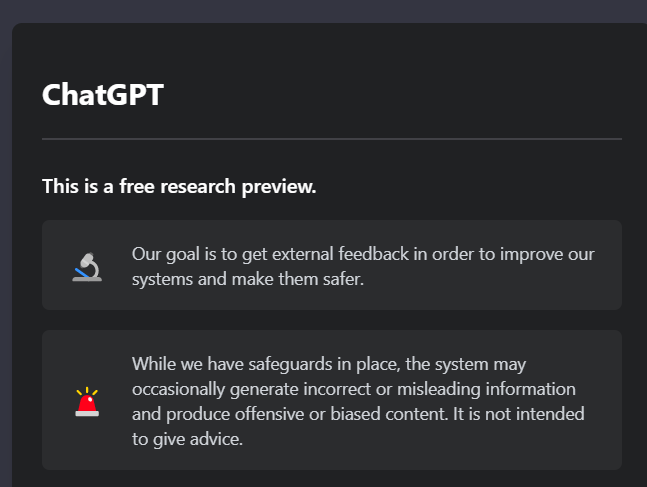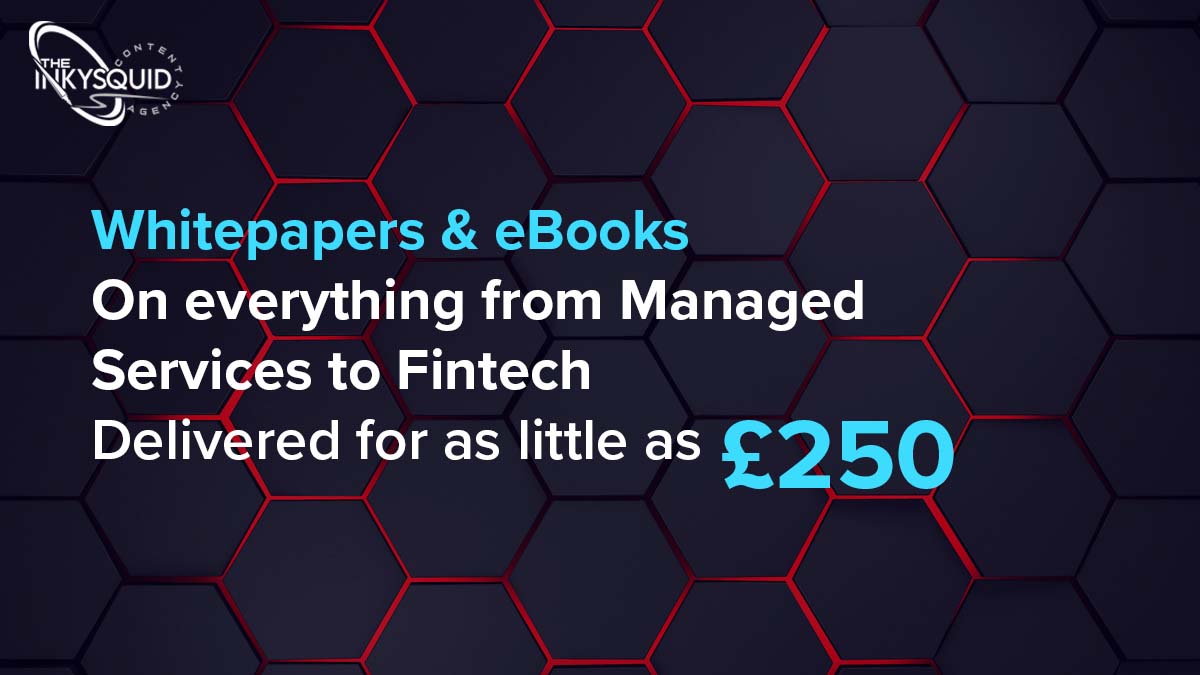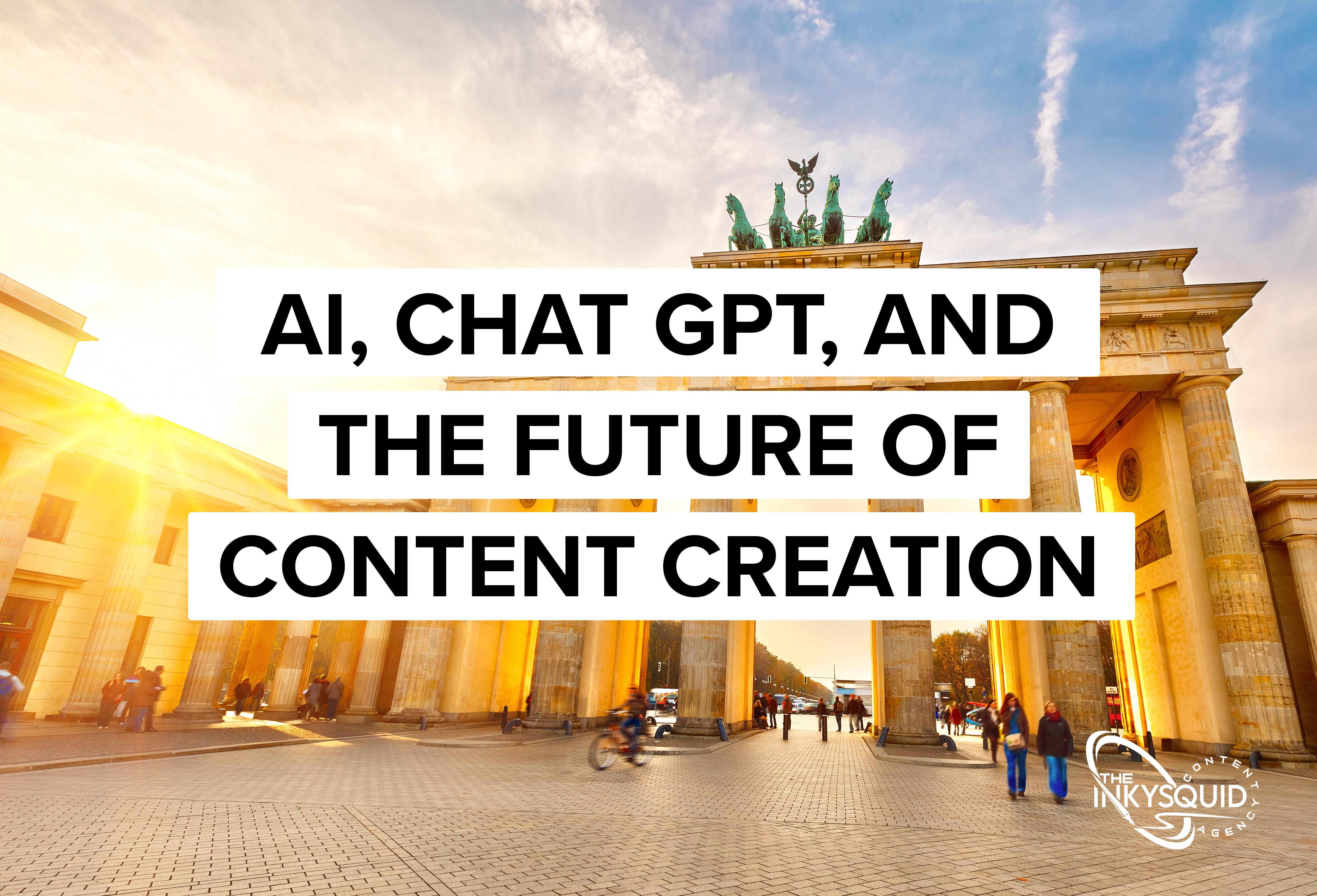Blog
Artificial intelligence has been hitting the headlines in a big way since the end of 2022. Once a rather nebulous concept in the minds of the public, more likely to conjure images of killer science-fiction robots than any real-world application, the release of advanced chatbot application ChatGPT has brought AI into the mainstream like never before.
Launched in prototype form in November 2022 by OpenAI, ChatGPT quickly gained attention thanks to its ability to generate detailed answers to a wide range of questions on an almost unlimited number of topics. As of February 2023, ChatGPT has over 100 million users and has prompted legacy search engine brands such as Google to accelerate the development of their own similar technology for fear of losing ground to the new kid on the block.
Entrepreneur of Tesla fame (and, more recently, Twitter infamy) Elon Musk was a founding member on the OpenAI board, but resigned in 2018, and Microsoft has also provided the company with a further $1 billion investment. The next likely step will be that Microsoft will seek to absorb ChatGPT’s technology into its Bing search engine allowing it to pose a genuine challenge to Google’s dominance in the space.
As of January 2023, Open AI was raising funds at a staggering $29 billion valuation.
How Does ChatGPT Work?
In its own words, ChatGPT is “a large language model that uses deep learning techniques to generate human-like text. It is based on the GPT [Generative Pre-trained Transformer] architecture, which uses a transformer neural network to process and generate text. The model is pre-trained on a massive dataset of text, such as books, articles, and websites, so it can understand the patter and structure of natural language. When given a prompt or a starting point, the model uses this pre-trained knowledge to generate text that continues the given input in a coherent and natural way.”
At the most basic level, models are trained by being given the task of predicting the concluding word in a sentence based on context. For example, if given the sentence “Ben is a…” the technology must decide whether the final word describes a relationship (brother, father) or perhaps a role, (plumber, singer) based on the context of the rest of the conversation. Similarly, it may be given a sentence with a masked word such as “Rachel […] spiders” with viable solutions such as hates, loves, keeps, etc.
Historically, AI has struggled with this task because it applies weight evenly to all words in a sentence and therefore chooses the most likely outcome based on statistics. For example, the word “spider” may be more consistently associated with “hate” in an AI dataset and therefore this word is selected. However, Rachel may love spiders, so by applying more weight to Rachel and their likes and dislikes, the opposite word would be selected.

Secondly, because input data is processed individually and sequentially, the window of context is fixed, which limits the complexity of the relationships between words and meanings which can be derived.
This is where transformers come into the equation. Unlike the Long-Short-Term-Memory (LSTM) models described above, transformers allow AI to process all input data simultaneously, and, by using a self-attention mechanism, apply varying weight to distinct parts of the input data in relation to any position of the language sequence. It is this technology which provides ChatGPT with is ability to generate far more accurate and human-like responses than other AI models of the past.
The above is obviously a massive oversimplification of how the technology operates and should not be taken as comprehensive. Our goal is to provide a simple-to-understand primer on the underpinning tech of Chat GPT before we move onto its potential as a disrupting force in the world of content creation. For a more detailed guide on how Chat GPT works, we highly recommend checking out this terrific article by Molly Ruby at Towards Data Science.
Content Creation – Have the Robots Finally Come for Our Jobs?
A huge part of the conversation around ChatGPT is whether this technology means the end for writers and traditional content creators. After all, why should companies pay a professional writer to create detailed and well-researched articles, blogs, eBooks, etc., if they can just get an algorithm to do it for free?
We are already seeing concerns from academia that ChatGPT-assisted plagiarism will become rife among students. Gone may be the all-night study session as ChatGPT is asked to generate a detailed essay in seconds. According to a recent column in The Guardian, copywriters are also breaking into a cold sweat at the speed this technology can perform their role.
But is speed everything?
If you scroll back to the first section of this article, where we asked ChatGPT to describe how it works, you may notice that it tends to repeat itself tautologically to make its point. Moreover, what immediately jumps out is how inhuman the response actually reads, and that the structure is not dissimilar from a 17-year-old’s college essay.
Then there’s the question of accuracy.
As a company which has been producing detailed and well-researched articles for a host of global clients for many years, The Inky Squid has built a strong reputation for the quality of research and industry knowledge. Our writers accurately predicted the fall of NFTs and cryptocurrency when many other industry commentators were claiming them to be the next big thing, and we saw the issues with various metaverse projects when others were convinced VR was going to be the new way of browsing the internet (still the case is some circles).
When you log into ChatGPT, you are presented with the following disclaimer:

Whilst ChatGPT may be pretty good at generating passable content, it stumbles when it comes to accuracy and foresight, and these are the factors on which we here at The Inky Squid have built our reputation.
What’s more, when used to generate articles, many users have found that ChatGPT content requires a “huge amount of editing” to become appropriate for publishing. ChatGPT has also announced it is working on a feature which will add an algorithmic watermark to content generated by the technology in an effort to combat the aforementioned plagiarism. It seems likely, therefore, that Google may start using this watermark to apply SEO penalties to websites which overly reply on content produced in this manner – especially considering the extent to which ChatGPT may be a significant competitor to the search engine giant.
The day may come when AI technology – either a future iteration of ChatGPT or an alternative offering – is able to create the kind of accurate, well-researched, and forward-looking articles you receive as a customer of The Inky Squid, but it is not this day. So, if you are looking for high quality and authentic content for your business, get in touch today for more information.

Add a comment:
Categories
Want better qualified leads for your business?
Latest Blogs
Up to date with whats going, check out our latest blogs
29-03-2023 -
Artificial intelligence has been hitting the headlines in a big way since the end of 2022. Once a rather nebulous concept in the minds of the public, more likely to conjure images of killer science-fiction robots than any real-world application, the release of advanced chatbot application ChatGPT has brought AI into the mainstrea
28-07-2022 -
Introduction
You’re probably familiar in some way with the term “content marketing.” Yet you may be wondering exactly what it is -- and how it’s relevant to you, as a technology company.
07-07-2022 -
Competition is squeezing the bottom line. Inefficient marketing has handicapped the top line. Stuck in between, managed service providers need an efficient, productive, and cost-effective MSP (Managed Service Provider) content marketing strategy to jumpstart business growth.
We’ve been using The Inky Squid for a while now and Martin and his team have been an invaluable extension to our marketing team. As a small company, our need for help with content development is critical. The quality and detail of the articles they’ve written has been impressive. They’re able to write spot-on articles about an extensive variety of technical topics we request. They’re extremely responsive and the turnaround time for projects has been fantastic. We plan to have a long-term relationship with them.
Beth Powell, Expeed Software
The Inky Squid has been a provider of excellent material for our blog for many years. They have always been responsive to our requests and feedback. Highly recommended!
Doug Nebeker, Power Admin
At net2phone, we have been using The Inky Squid for content writing for a few years and love the service we receive. They produce quality and insightful content with quick turnaround times that helps us maintain an active blog and social media presence for our partners and our customers! The writers are knowledgeable, professional, and fast and I'd recommend their services to anyone looking for help with their content marketing strategies.
Denise Darienzo, net2phone
The Inky Squid is a nice team of marketing experts that quickly and effectively respond to the customer's demands. Their campaigns have a personal touch based on the customer's aesthetic; they're appealing to the eye, informative, and result in good engagement. We're happy with the collaborations we've had so far.
Viktoriya Gorod, Starwind Software
I highly recommend The Inky Squid to anyone looking to outsource or complement their content creation program. Their articles are well researched, interesting to read, and have helped us grow our audience. The quality of their work is outstanding, they are very dependable and I can't say enough good things about this company and their work!
Bill Lewis, New Offerings







